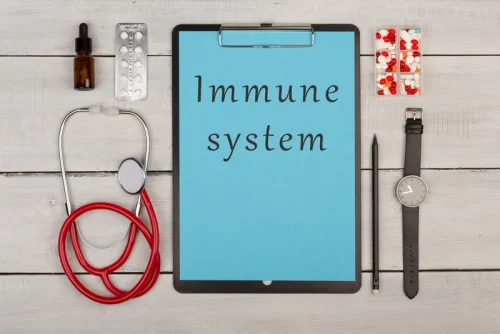
Our survey revealed that more than 1 in 4 Americans from Texas, Louisiana, Arkansas, and Oklahoma feel anxious while drinking. Experts say that feelings of anxiety stemming from alcohol consumption can last for several hours up to an entire day after drinking. Some people may use alcohol as a coping mechanism for anxiety, which can create a form of alcohol dependency that only worsens the sense of worry. There are somewhat predictable stages that a person will go through when they drink alcohol.

Other major factors
Because it takes time for alcohol to have an effect on the body, consuming the large amounts required to reach these BAC levels can occur while the person is still reasonably sober. Alcohol affects the brain and every part of the body on a cellular level; and, in addition to being the most commonly abused drug, alcohol is probably the most dangerous drug. While some find it fun to get a buzz from drinking alcohol from time to time, consuming too much of it can be downright dangerous.
Related Content

People with this gene are also more likely to be impulsive when sober, and more likely to suffer from mood disorders. Some people are prone to doing crazy stunts when they get drunk. Because alcohol reduces our inhibitions, it makes us more likely to act impulsively. what does being drunk feel like For some of us, this means doing a bit of extra online shopping. But for others, it might mean doing something truly dangerous, like driving drunk or taking a dive off the roof. The joy, the confidence, the lowered inhibitions — that’s all the alcohol talking.

Read this next
This impairment is due to its effect on the brain’s prefrontal cortex, which is responsible for rational thinking and impulse control. As a result, individuals may engage in risky behaviors, such as driving under the influence or making poor financial decisions. Scaling these risky BAC thresholds is not as difficult as some might think.
Heart Health
They are also at risk for respiratory depression, so medical attention should be sought. A BAC of 0.09 to 0.25 is referred https://ecosoberhouse.com/ to as the excitement stage. In this stage, a person may lose emotional stability and begin slurring their speech.
In your liver
Or, perhaps more accurately, it can allow you to expand your communicative freedoms by overriding your typically self-protective defense mechanisms. And, not surprisingly, in the moment, that can make you feel happy, even euphoric. But although under the influence you may well act differently, that in itself doesn’t mean that drinking reveals—or can reveal—who you actually are. The amount of alcohol in a person’s bloodstream is their blood alcohol content (BAC). The duration of alcohol intoxication depends on the quantity of alcohol that a person consumes.
- You don’t even have to quit drinking completely or identify as an alcoholic to join.
- These risks can have immediate and severe consequences, including legal issues and physical harm.
- In fact, once they sober up, there will be no carry-over from what in an altered state of consciousness they so boldly put on display.
- Alcohol tolerance can affect the extent to which a person feels intoxicated.
- You do not care if your buddy has got work in the morning or if your sister has to get home to the babysitter — NO!
- According to the Centers for Disease Control and Prevention (CDC), excessive alcohol intoxication led to more than 140,000 deaths yearly in the United States from 2015 to 2019.
Sobriety or Low-Level Intoxication (BAC: 0.01–0.05%)
The duration of intoxication depends on how much alcohol an individual consumes. Typically, it can take at least several hours for their BAC to reduce enough for it to be safe to drive. Remember, as much as we’d like to think we know what will happen when we drink, alcohol can affect our brains in surprising ways. ” Unlike heavy drinkers, people who rarely have more than a sip of Chardonnay tend to feel sedate when they drink. Prepare to be carrying these folks into a cab after a night out.
How well do you score on brain health?
Additionally, a person will likely experience body temperature drops, poor circulation, possible respiratory depression, and possible death. There are seven stages of being drunk, ranging from being sober to dying. Signs of being drunk include loss of coordination or balance, poor judgment, slurred speech or vision changes. Drunk is a general term to describe the effects of alcohol on the body. It typically reaches your brain within 5 minutes, and you can begin feeling the effects within 10 minutes.

Main Content
The faster alcohol is absorbed into your bloodstream, the higher your BAC, and the longer it’ll take to sober up — especially if you keep drinking. BAC is the amount of alcohol in your blood compared to the amount of water in your blood. In the United States, you’re considered legally drunk if you have a blood alcohol concentration of .08 grams per deciliter (dL). Your liver can metabolize about one standard drink per hour, but that doesn’t mean that your buzz will wear off that quickly. How alcohol affects you, how drunk you get, and how long it lasts depends on several factors. If uncertain about whether a person’s alcohol consumption is an emergency, err on the side of caution.
- Drinking alcohol can make people feel happy in the moment, but it can also leave them grappling with negative emotions long after the bottle is empty.
- Unfortunately, when consuming alcohol, some people don’t recognize that they are becoming intoxicated, which can become obvious to those around them.
- When drinking alcohol, you might spill secrets, become sexually promiscuous, or become more aggressive than you normally would.

